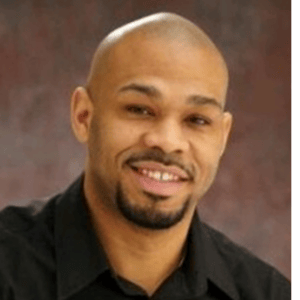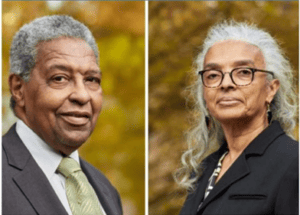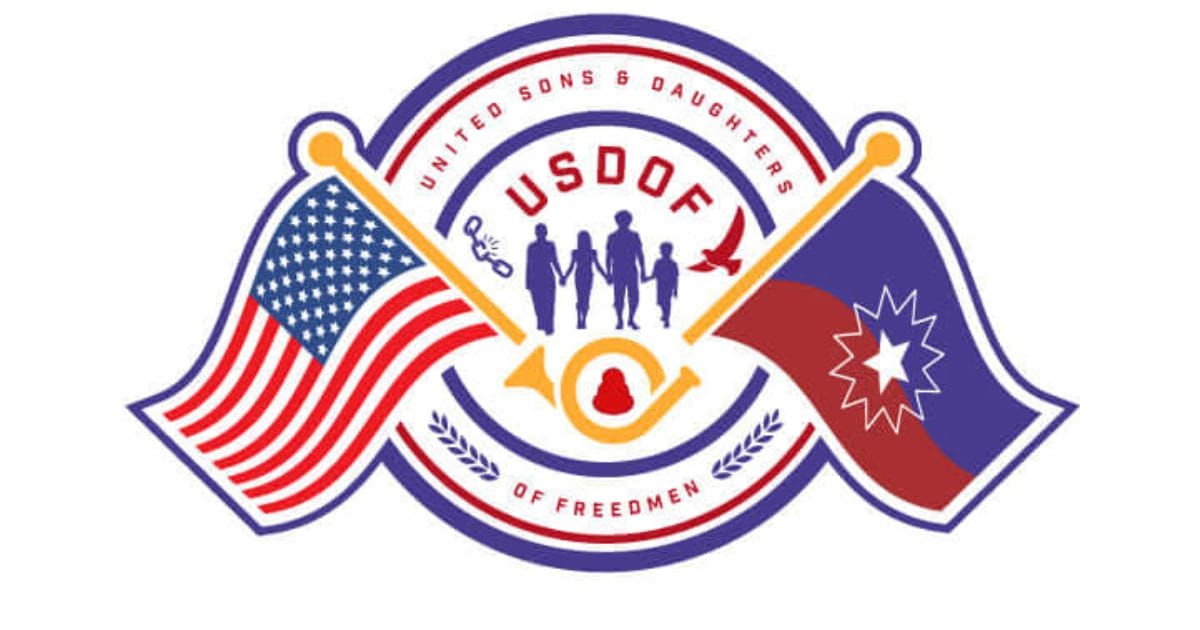By Stephanie Gadlin, Special to the Crusader/Inland Foundation Fellow
Some 160 years after emancipation, the descriptors “Negro,” “Colored,” “African American,” and “Black,” have been used interchangeably to define the descendants of enslaved people. But a growing movement has emerged to suggest it is time for a universal upgrade.
A coalition of activists, educators, researchers and legal scholars has launched a national campaign to rebrand the descendants of enslaved Black people as “American Freedmen.” By doing so, the group says Black descendants of enslaved people will finally be recognized by the federal government as a unique ethnic, cultural, political and social group within the United States.

President of Chicago Freedmen
Marlon Watson, president of the Chicago Freedmen, told the Crusader the designation of “American Freedmen” is a necessary step in securing the long overdue reparations. As the April 27th deadline approaches, he says his group is encouraging local residents to support the call for “American Freedmen” to be federally recognized in conjunction with the designation of “Black” as a specific ethnic group on U.S. census forms.
“We want people in Chicago and across the country to tell the (federal government) that we want to define ourselves in this country,” Watson said. “They will determine what will go on the census and what people will be able to claim and how individuals can legally identify. The descendants of enslaved people in America are a unique class of people—and it is time we begin to fully identify as such for a number of reasons. It’s time everyone stopped getting full off our plates, while our people are starving or struggling.
“American Freedmen are people who had at least one traceable ancestor enslaved in this country,” Watson said. “A federal designation of such, along with the general identifier of ‘Black’ will answer the question on who qualifies for reparations from the federal government.”
Every 20 years, the Office of Management and Budget (OMB) solicits comments on the initial proposals from the Federal Interagency Technical Working Group on Race and Ethnicity Standards (Working Group). In 1997 and at the behest of national civil rights groups, the OMB designated “African American” as a statistical policy directive for maintaining, collecting, and presenting federal data on race and ethnicity. The current working group, chaired by Bob Sivinski, will then present its final recommendations to OMB to improve the quality and usefulness of federal race and ethnicity data.
“That is the key to unlocking our claim to reparations,” Watson continued. “The designation of “freedmen” to describe our people was utilized through Reconstruction and in several Supreme Court cases. Reparations cannot be seen as allocated solely on race–or the courts will find a loophole. We can’t do race-based legislation, it would be ruled unconstitutional. After our country used race to marginalize us and give white folk an advantage they then outlawed race when it comes to rectifying the problems that deal specifically with us. Our unique political and identity is key to unlocking resources that should be set aside for us based on the systemic harm that continues to be done to us because of our socio-political status.”
Born and raised on Chicago’s South Side, Watson is a 45-year-old Air Force veteran who said he was raised to serve people through community activism and good stewardship. He said through the years he thought the reasons predominantly Black neighborhoods were scarce in resources and development was due to a lack of personal initiative, but later realized the political forces that contributed to the blight.
Political engagement and community activism led him to create the American Descendants of Slavery (ADOS) movement, which he has since abandoned due to what he called “toxic.” “They became too anti-immigrant and they were doxing people and other things,” Watson said. “I no longer associate with that group, there was too much toxicity and other things, so I left and that’s sort of how I got started.”
Watson said it was learning more about the cruel and unusual punishment faced by his ancestors during the American slavery period that lit his enduring flame for justice. Black Americans lost their core personal identities when their ancestors were kidnapped and forced into bondage for a period of 233 years. During the legalized sanction of chattel slavery, tribal affiliation, kinship, language, religious and cultural attributes were stripped from enslaved people by white foreigner and their captors. A new people and sub-class was created through public policy and social regulation.
Despite brutal, inhumane conditions, emancipated people formed scores of social, cultural, educational, religious and political institutions though many of them were regulated and controlled by white society. The Bureau of Refugees, Freedmen, and Abandoned Lands was established in the War Department by an Act of Congress on March 3, 1865. Known as the “Freedmen’s Bureau” the agency was responsible for the supervision and management of initiatives directed toward newly emancipated people and lands abandoned or seized during the Civil War, duties previously shared by military commanders and U.S. Treasury Department officials.
The Freedman’s Savings and Trust Company was a private corporation chartered by an act of the U.S. Government signed in 1865 by President Abraham Lincoln. It was created to help develop the newly freed 4 million African Americans as they endeavored to become financially stable. Originally, the bank was headquartered in New York, but later moved to Washington, DC. Eventually, there were 37 locations across 17 states—few of which actually assisted Black people economically. Orator and abolitionist Frederick Douglass described it as the “Black man’s cow but the white man’s milk.” It closed in 1874.
The promissory note of “40 acres and a mule” Special Field Order No. 15, a wartime order proclaimed by Union General William Tecumseh Sherman was disregarded and never honored. Instead, the federal government gifted more than 160 acres to white families and individuals displaced by the Civil War to end slavery.
Newly freed Blacks, most of whom were highly skilled, but unemployed and illiterate, having been forbidden to learn to read and write, were thrust into a capitalist economy and told to fend for themselves. Whites took advantage of the desperate state and offered new forms of subjugation (such as sharecropping) and schemes that amounted to wage theft. Blacks quickly became an American ‘underclass’ due to no fault of their own.
Those who were able to forge lives for themselves through various professions and industry, lived under constant threat of racial violence and mob actions by poor whites triggered by their own fears, psychotic racial episodes and economic insecurities.

Duke University Professor Dr. William “Sandy” Darity and folklorist A. Kirsten Mullen co-wrote the book, “From Here to Equality.” The tome lays out a distinct blueprint for securing reparations. As systematic inequality persists in the form of housing discrimination, unequal education, police brutality, mass incarceration, employment discrimination, and massive wealth and opportunity gaps. Economic data indicates that for every dollar the average white household holds in wealth the average Black household possesses a dime.
The professors told the Crusader the federal government owes the Black descendants of enslaved people upwards of $14 trillion, or $350,000 direct payment per individual. Reparation is a program of redress, they noted. “This is what is needed to close the immediate wealth gap between Blacks and whites in this country,” Dr. Darity said. “Most significant for the movement is that we attempted to describe what a reparations plan should look like and that has drawn a substantial amount of attention.”
“People are looking not only about our shared history which has not been taught in public schools or at the college level, but they also are looking for strategies of achieving true reparations,” Mullen added, noting there has been no sustained, continuous movement to achieve that goal.
“We estimate the minimum bill should be $14 trillion,” Darity chimed in. “We came up with that figure because that’s the amount we estimate would be required to eliminate the racial wealth gap. Based on federal reserve data for 2019, that would come to about $350,000 per Black individual whose ancestors were enslaved in the United States.”
Organizers with the Chicago Freedmen, headquartered at 1865 E. 71st Street, believe in using the legislative and political process to fight for social change. Though some members believe Blacks should withhold their vote in all elections, Watson reiterated he did not support that position. “I believe in voting and utilizing every tool we have to fight for American Freedmen,” he said. “Our primary mission is reparations on the federal level–and we have to engage with elected officials to make that happen. The federal government is the only entity that has the capacity to close the racial wealth gap between us and white people in this country. The wealth gap is the real legacy of slavery.”
According to the U.S. Census, there are 41.6 million African Americans in the United States. Coupled with the 5.8 million respondents who identified as Black or African American in combination with another race group, such as White or American Indian and Alaska Native, the Black or African American alone or in combination population totaled 46.9 million people (14.2% of the total population) in 2020.
In 2020, the percentage of people who reported multiple races changed more than all of the race alone groups, increasing from 2.9 percent of the population (9 million people) in 2010 to 10.2 percent of the population (33.8 million people) in 2020. Such diversity in racial reporting is why groups advocating for the Freedmen’s designation believe it to be critical.
Nyheim Way is president and co-founder of United Sons and Daughters of Freedmen (USDF) based in Athens, Georgia. A lead organizer in the modern reparations movement, he has devoted his life to fighting racial injustice. His national organization works to ensure the “broken promises of reconstruction” are secured for today’s descendants of American Freedmen. The movement is growing but Way says there is a need for public education around the moniker’s history.
“There’s a lot to take in. Based on research we were doing, we started to notice that we were being called Freedmen right after slavery,” Way said. “This name gave a connotation that we were freed and (though) whites in this country only wanted to view us as slaves and subhuman. So, we formulated our organization to combat a lot of the teachings of the Confederacy–like the Daughters of the Confederacy, and the Lost Cause teachings–to give a true accounting of our history in this country.”
USDF’s primary mission is dedicated to honoring the memory of its Freedmen ancestors, preserving the historical record and legacy of slavery and the movement to end it; and to fighting for federal reparations for the descendants of American Freedmen in order to repair the centuries of social, political, physical, psychological and spiritual harm caused by institutionalized (and legal) white supremacy.
“We didn’t get a chance to really use that term, “Freedmen” because the white southerners and the people that published their textbooks in the north, made sure that we would keep names that alluded to slavery, (such as ) Negro, colored, Black, and at times mulatto,” Way said. “ These were names that were given to us during slavery. So, when we get the term American Freedmen it denotes that we are in a new status or in a new condition of being as opposed to the former condition which was slavery.
“ As American Freedmen there were a series of Reconstruction amendments (to the U.S. Constitution) passed for the benefit of our specific people, not because we were Negros, but because we were men and women who had been for generations, despoiled our rights,” he explained. “ So, we felt that American Freedmen was the best terminology to go with because it ties us into those Reconstruction amendments, and it sets us apart as a separate ethnic group.”
The American Anthropological Association recommends the elimination of the term “race” from OMB Directive 15 since the 2010 Census. They have noted that “During the past 50 years, “race” has been scientifically proven to not be a real, natural phenomenon.” USDF recommends that the term “race” be replaced with the term “population group.” The term can be abbreviated to read “Pop. Gr.” or some variation.
Ethnicity and race information is requested under the authority of 42 U.S.C. Section 2000e-16 and in compliance with the Office of Management and Budget’s 1997 Revisions to the Standards for the Classification of Federal Data on Race and Ethnicity.
USDF’s petition reads: “American Freedmen can be recognized as an Ethnic Group in this country. This will be the first time in our history, American Freedmen can be recognized as an Ethnic Group in this country. This will be the first time in our history in this country that our people will be recognized this way.”
Click Here to Read Part II Reparations: Who Pays and How Much






